Georgia
FBI investigates suspicious letters sent to Georgia Secretary of State's Office

ATLANTA – The FBI’s Atlanta field office confirmed on Thursday that agents responded to the Georgia Secretary of State’s Office after receiving a suspicious letter. An agency spokesperson says it is part of a broader investigation into similar incidents nationwide.
The confirmation comes on the third day of early voting in the state, which has so far seen record-shattering turnout.
Last month, FBI Oklahoma City, in coordination with the U.S. Postal Inspection Service, launched an investigation into a series of suspicious mailings sent to election officials in several states. Some of these letters contained an unknown substance.
“The FBI and U.S. Postal Inspection Service are investigating a series of suspicious mailings sent to election officials in several states. Some of the letters contained an unknown substance and we are working closely with our law enforcement partners to respond to each incident and safely collect the letters. We are also working with our partners to determine how many letters were sent, the individual or individuals responsible for the letters, and the motive behind the letters,” the statement from the FBI Oklahoma City read. “As this is an ongoing matter we will not be commenting further on the investigation, but the public can be assured safety is our top priority. We would also like to remind everyone to exercise care in handling mail, especially from unrecognized senders. If you see something suspicious, please contact law enforcement immediately.”
The FBI has not yet disclosed details about the letter received at the Georgia Secretary of State’s Office, nor whether it contained any substances.
FOX 5 has reached out to Sec. Brad Raffensperger’s office for comment, but have not heard back.

Georgia
Father and son indicted on new charges related to Georgia school shooting

IE 11 is not supported. For an optimal experience visit our site on another browser.
-
Now Playing

Father and son indicted on new charges related to Georgia school shooting
03:52
-
UP NEXT

‘You can’t just let people die’: Inmates face unique hurricane threats
02:42
-

New heart stents offer life-saving treatment for babies
03:16
-

Teacher accused of re-enacting George Floyd’s death in Minnesota classroom
01:57
-

What’s next in the Menendez brothers case?
03:40
-
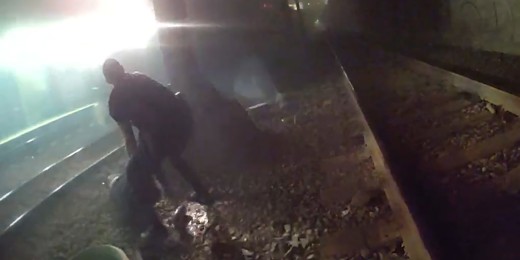
Watch: Police rescue man from oncoming train with seconds to spare
00:54
-
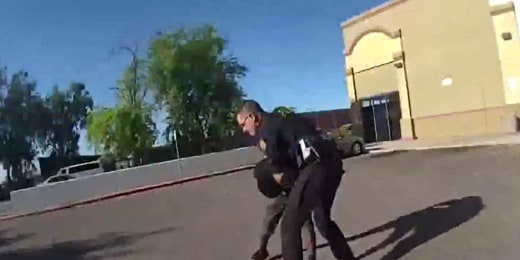
Phoenix officers under scrutiny after video shows Tasing and punching of deaf man
03:47
-
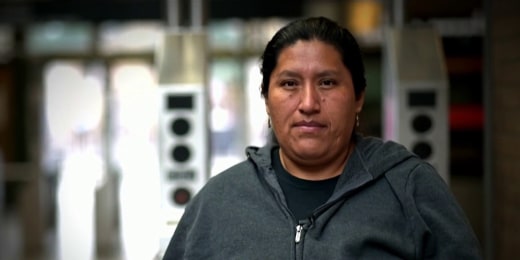
Migrant mothers selling candy on New York subways struggle with childcare
05:30
-

How foreign disinformation makes its way into the American mainstream
03:12
-

Family of Menendez brothers pushes for their release
01:43
-

Major challenges remain in North Carolina more than two weeks after Hurricane Helene
01:38
-

Harris interviewed by Fox News in pitch to anti-Trump Republicans
02:34
-

Texas Board of Pardons rejects death row inmate’s clemency request
00:53
-
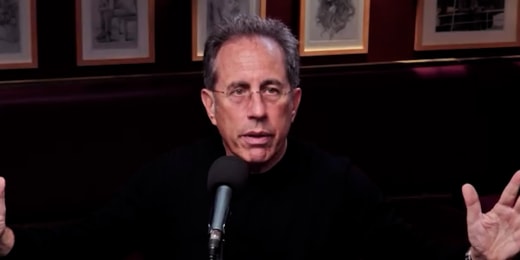
Jerry Seinfeld walks back comments on ‘extreme left’ ruining comedy
00:32
-

Video shows Phoenix police punching and tasing deaf Black man
02:44
-
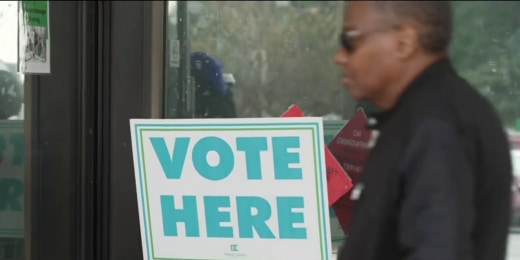
Georgia judge blocks hand-count ballot rule requirement for counties
01:14
-

Two women talk about their diagnoses during breast cancer awareness month to inspire others
02:08
-

Vance addresses gender gap indicated by election polls
00:59
-

Judge upholds execution warrant in ‘shaken baby’ case
00:54
-

Lufthansa fined $4 million for allegedly discriminating against Jewish passengers
01:32
-
Now Playing

Father and son indicted on new charges related to Georgia school shooting
03:52
-
UP NEXT

‘You can’t just let people die’: Inmates face unique hurricane threats
02:42
-

New heart stents offer life-saving treatment for babies
03:16
-

Teacher accused of re-enacting George Floyd’s death in Minnesota classroom
01:57
-

What’s next in the Menendez brothers case?
03:40
-

Watch: Police rescue man from oncoming train with seconds to spare
00:54
Georgia
‘No authority’: Georgia election board loses again in court as judge strikes down 7 rules
Georgia judge says hand count would lead to ‘administrative chaos’
Judge Robert McBurney said the last-minute addition of a hand count rule would lead to “administrative chaos” on election day.
For the second time in two days, Georgia judges delivered a major blow to efforts by the state’s election board to change the rules governing this November’s election just weeks in advance.
In a late-Wednesday ruling, Judge Thomas A. Cox Jr. struck down seven new rules from the board, including a controversial ballot hand-count rule that another judge had already temporarily blocked on Tuesday. Cox ruled that all seven rules recently passed by the board’s Republican majority contradicted the state’s election laws and exceeded the state board’s authority.
“An administrative agency can only act to implement existing statutory schemes; they hold no authority to create new requirements or otherwise expand their own authority,” Cox wrote.
Members of the state election board didn’t immediately respond to a request for comment. Lawyers for Eternal Vigilance Action Inc., a conservative advocacy group that sued to challenge the rules’ constitutionality, also didn’t immediately respond to a comment request.
On Tuesday, after the ballot hand-count rule was temporarily halted by a different judge, state board member Janelle King said in a statement that “sometimes the victory lies in the public knowing that the State Election Board is paying close attention to our election process.”
Hand-count rule ‘vastly expands the authority and obligations of poll officials’
The flurry of last-minute changes ahead of the November election prompted Republican and Democratic officials to voice concern in recent weeks.
King and two other Republican members of the five-person state election board – who have been praised by former President Donald Trump as “pit bulls fighting for honesty, transparency, and victory” – passed the ballot hand-count rule and several other measures despite being advised by Georgia Republican Attorney General Chris Carr that they were probably unlawful. King challenged Carr’s assessment in her Tuesday statement.
The hand-count rule would have required thousands of Georgia poll workers to unseal ballot boxes and hand count the ballots, verifying that the totals match tallies produced by machines and working to correct any discrepancies. Studies have found that hand counts are slower and less accurate than machine counts.
Georgia Republican Secretary of State Brad Raffensperger warned the ballot hand-count rule in particular could lead to “error, lost or stolen ballots, and fraud.” More broadly, he described a raft of election changes from the state board as “a mess.”
The Georgia Association of Voter Registration and Election Officials, a nonpartisan group with more than 500 officials and staff, had also warned the ballot hand-count rule could undermine public confidence in the election and “set fatigued employees up for failure.”
Election Day is weeks away. Sign up for USA TODAY’s On Politics newsletter for more updates.
In his Wednesday decision, Cox described the rule’s hand-count process as “cumbersome,” and said Georgia election laws that spell out poll officer duties once polls close don’t call for hand counting.
“In fact, the rule vastly expands the authority and obligations of poll officials in preparing ballots pre-delivery to the superintendents and pre-certification,” Cox wrote.
The other six rules Cox struck down would:
- Require local officials to conduct a “reasonable inquiry” before certifying election results
- Grant county election board members access to all election-related documentation created as the election was being conducted;
- Require an absentee ballot deliverer to provide a signature and photo ID at delivery;
- Demand video surveillance and recording of authorized drop boxes after the polls close;
- Broaden mandatory, designated poll-watching areas; and
- Add new requirements for the county board of registrars in reporting absentee ballot information.
Georgia
Georgia measure would cap increases in homes' taxable value to curb higher property taxes

ATLANTA — For Georgians unhappy about rising property tax bills, lawmakers say they have a solution — a limit on how much of a home’s increasing value can be taxed.
With early balloting underway, voters are deciding on a state constitutional amendment that would limit increases in a home’s value for property tax purposes to the broader rate of inflation each year.
Supporters say it will protect current homeowners from ever-higher property tax bills, but opponents warn that the caps will unfairly shift the burden onto new homeowners, renters and other property holders.
Georgia is one of eight states where voters will decide property tax measures Nov 5, a sign of how rising tax bills are influencing politics nationwide.
Most significant is North Dakota, where a referendum seeks to end the current property tax for all purposes except repaying existing debt. Many officials there, including traditionally low-tax Republicans, are fighting the measure, saying such a big change could disrupt essential state and local government services.
Questions are also on the ballot in Florida, Arizona, Colorado, Illinois, New Mexico and Wyoming.
With demand outweighing supply, housing prices are rising nationwide, and those increased values can show up in higher taxes.
From 2018 to 2022, the total assessed value of property across Georgia rose by nearly 39%, according to figures from the Georgia Department of Revenue. Most governments pocketed increased revenues without raising tax rates, boosting employee pay and other spending. Statewide property tax collections rose 41% from 2018 to 2022.
Lawmakers got an earful from constituents and responded with the proposed constitutional amendment. State Senate Finance Committee Chairman Chuck Hufstetler, a Rome Republican who helped write it, calls increases based on higher valuations “a backdoor tax increase.”
“I think that some of our homeowners, particularly the elderly, are getting taxed out of their homes,” Hufstetler said. “They don’t even have an income anymore, but yet their taxes are going sky high.”
The protection would last as long as someone owns their home. The assessed value would reset to the market value when a home is sold.
Dozens of Georgia counties, cities and school systems already operate under similar local assessment caps.
There’s little opposition, and early voters interviewed this week were universally favorable. Brad Turney, who owns a condo in Atlanta’s Midtown neighborhood, was among supporters.
“I don’t want it to get out of hand, and I think this might be helpful,” Turney said after voting in suburban Sandy Springs.
But school systems have been wary, warning that the cap could starve them of needed funds. That’s especially true because most school districts can’t raise property tax rates above a certain level.
To ease schools’ concerns, the measure gives local governments and school districts until March 1 to opt out. Any that do not would be permanently governed by the cap.
“You only have one time to opt out, and then you’re done,” said John Zauner, executive director of the Georgia School Superintendents Association. He expects many systems could exit.
Hufstetler said it would be a “mistake” to opt out.
Assessment caps lead to disparities, with people paying higher taxes than their neighbors just because they bought a house later. Audrey Yushkov, a senior policy analyst with the Tax Foundation, warned that the measure could make purchasing a home more difficult in the future, because new buyers would face higher bills and longtime owners would have an incentive to stay in their current houses to keep their tax bills low. The Tax Foundation is a Washington, D.C.-based group that is traditionally skeptical of tax hikes.
“There is this lock-in effect for current homeowners and a lock-out effect for new homebuyers,” Yushkov said.
Those effects are rampant in California, which pioneered an even stricter assessment cap, Proposition 13, in 1978.
Yushkov also noted that higher tax bills would be passed on to renters because the amendment doesn’t shield apartments and other commercial property from higher assessments.
The measure also includes a provision letting city and county governments increase sales taxes by a penny on every $1 of sales to replace property taxes. Hufstetler lauded that provision, saying it would allow governments to tax visitors to pay for local services. But Yushkov called it a loser, saying property taxes are more transparent because people get one big yearly bill and because the services are clearly linked to the taxes.
-

 Entertainment1 week ago
Entertainment1 week agoHold my beer can: Museum says a worker thought unique art installation was trash
-

 Entertainment1 week ago
Entertainment1 week ago'The Office' star Jenna Fischer reveals private breast cancer battle: 'I am cancer free'
-
/cdn.vox-cdn.com/uploads/chorus_asset/file/25673932/462754179_560996103109958_6880455562272353471_n.jpg)
/cdn.vox-cdn.com/uploads/chorus_asset/file/25673932/462754179_560996103109958_6880455562272353471_n.jpg) Technology6 days ago
Technology6 days agoMeta suggests AI Northern Lights pics are as good as the real thing
-

 Technology1 week ago
Technology1 week agoScammers exploit grief with fake funeral streaming on Facebook
-

 Lifestyle5 days ago
Lifestyle5 days agoIs the free speech debate dead? Plus, the devil! : It's Been a Minute
-

 Technology4 days ago
Technology4 days agoThis 3D-printed Texas hotel is shaking up the construction industry
-

 Lifestyle4 days ago
Lifestyle4 days agoHow one Afro-Colombian community honors their ancestry
-
Business2 days ago
10 million pounds of meat and poultry recalled from Trader Joe's and others in latest listeria outbreak

















